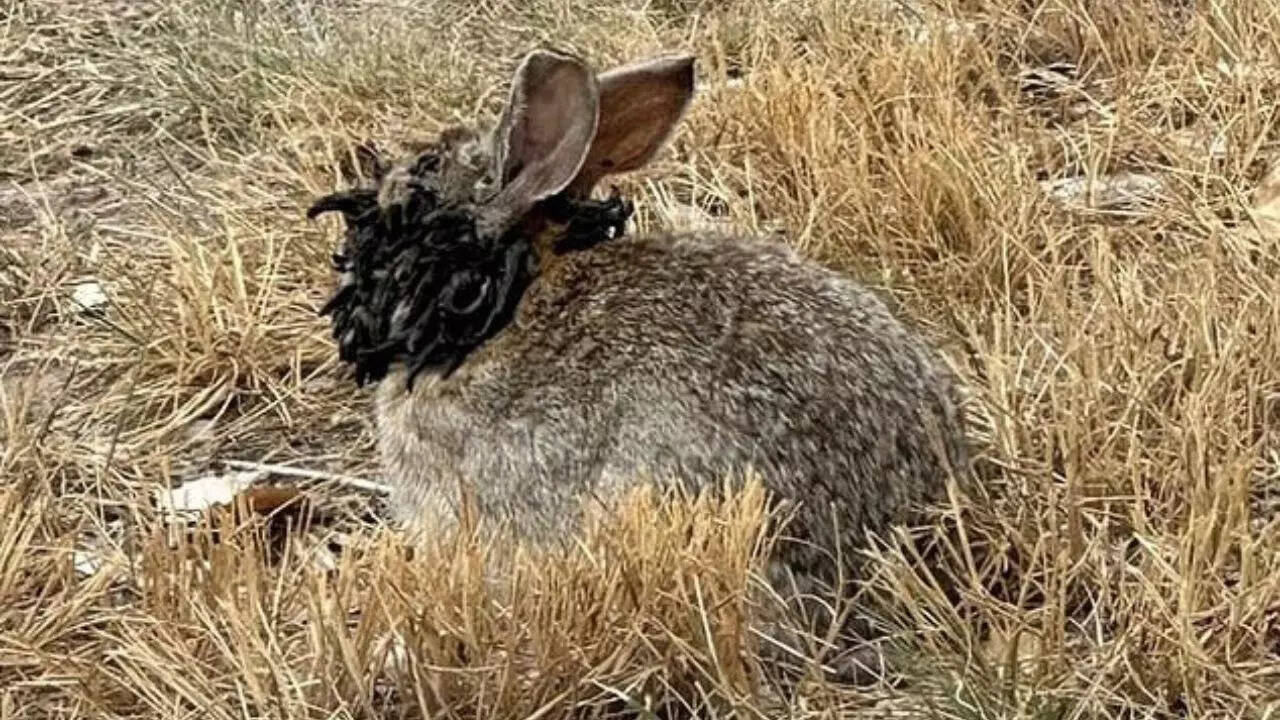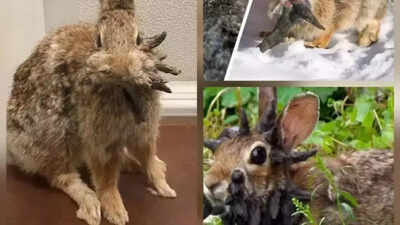A bizarre, naturally occurring virus is giving wild rabbits a truly unsettling makeover — transforming their faces with horn-like or tentacle-shaped growths that have earned them the nickname “zombie bunnies.” Known as Shope papillomavirus (SPV) or cottontail rabbit papillomavirus (CRPV), this infection primarily affects wild cottontail rabbits in the United States. While the strange protrusions are usually harmless to humans and other animals, they can cause severe problems for rabbits, from impaired vision to difficulty eating, sometimes making them easy targets for predators. The virus has fascinated scientists for decades, and sightings continue in parts of the Midwest every year.
What is the Shope papillomavirus in rabbits?
Shope papillomavirus is a DNA virus that specifically targets rabbits, especially wild cottontail species. First identified in the 1930s by Dr. Richard Shope, it has been the subject of scientific study for nearly a century. The virus causes wart-like tumors, called papillomas, to form on the head, face, and ears. These growths can resemble horns, spikes, or fleshy tentacles, creating the eerie “zombie bunny” look. While most growths are benign, they can sometimes become cancerous. Domestic rabbits, while less likely to contract SPV, can still be infected if exposed to wild carriers or infected biting insects.
How the virus spreads among rabbits
SPV is spread mainly through direct rabbit-to-rabbit contact or by blood-feeding insects such as mosquitoes, fleas, and ticks. These insects tend to target the head and ear areas where fur is thinner, making it easier for the virus to enter through small wounds. Once inside, the virus causes rapid skin cell growth, leading to the formation of tumours. The risk of spread is highest in warmer months when insect populations surge. In areas where rabbits congregate in high numbers, such as breeding grounds or food-rich fields, transmission can be swift and affect a significant portion of the population.

Impact of the virus on rabbit health
Although the Shope papillomavirus rarely kills rabbits directly, its effects can be life-threatening in indirect ways. Large growths around the eyes can obstruct vision, making it harder to spot predators. Tumors near the mouth or nose can interfere with eating or breathing, potentially leading to starvation or respiratory distress. Infected rabbits often become slower and weaker, increasing their vulnerability to predators. While some rabbits develop an immune response that causes the growths to shrink or disappear over time, others may suffer from persistent or worsening tumors.
Can it infect dogs, cats, or humans?
The Shope papillomavirus is strictly species-specific — it only infects rabbits. This means there is no danger to humans, dogs, cats, or other common pets. However, domestic rabbits can be at risk if they are bitten by infected insects or come into direct contact with infected wild rabbits. Pet owners are advised to keep rabbits indoors during peak insect activity and to use protective enclosures outdoors. While SPV cannot “jump” to other animals, it can still have serious implications for pet rabbits if precautions are not taken.
Where are infected rabbits most commonly found?
The virus is most often seen in wild rabbit populations in parts of the United States, especially in the Midwest, including South Dakota and Colorado. These regions frequently report sightings of rabbits with horn-like growths during late spring and summer. Because some infected rabbits show no visible symptoms, tracking the true spread of the virus can be difficult. Wildlife experts note that SPV has likely existed for centuries in North America, only becoming widely known after photographs of “horned rabbits” began circulating in popular media.
What to do if you see an infected rabbit
If you encounter a wild rabbit with horn-like growths, it is best to observe from a distance. Handling or attempting to treat the animal can cause unnecessary stress and increase the risk of spreading the virus to other rabbits. Wildlife authorities recommend leaving infected wild rabbits undisturbed, as many can survive with the condition or recover naturally. For pet rabbits showing suspicious growths, a veterinarian should be consulted promptly. In severe cases, surgical removal of tumors may be necessary. Preventive care includes insect control, regular health checks, and keeping domestic rabbits separated from wild populations.







